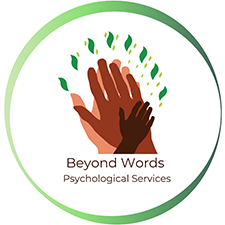Why Do Kids Lie?
You know your teenager came home after curfew, your daughter spilled nail polish on the carpet, and your son ate cookies before dinner – so why do they lie about it? Learn about the developmental reasons kids lie below, and explore ways that you can help your child to be more honest.
2-3 Years Old
Children at this age typically do not lie intentionally, but struggle to distinguish reality from their imagination or dreams. They tend to elaborate on stories that are based in truth, and may not fully understand which parts of their story are true or false. A child’s perception of the world at this age is that anything is possible.
4-6 Years Old
Children begin to understand the differences between fantasy and reality at this age, and they are beginning to develop a conscience and understand that some choices or behaviors may disappoint or anger their caregivers. Guilt tends to be associated with misdeeds, and so for the first time, children may construct lies in an attempt to avoid disapproval or punishment. They may also lie or exaggerate stories in an attempt to gain attention if they have learned from experience that this works in their favor. Children in this age group are beginning to understand the power of words, and are still focused enough on fantasy that they may believe their words can make wishful thinking a reality.
7-10 Years Old
Most children fully grasp the differences between reality and fantasy now. The most common reason for lying is to avoid punishment, though children at this age also recognize that altruistic lies or polite social lies can be appropriate to avoid hurting another person. A pattern of lying at this age may be a sign of more serious concerns, such as a cry for attention or severe sensitivity to critical feedback.
Teen Years
Adolescents clearly comprehend that lying is not acceptable in most situations, and they understand that being caught in a lie may carry consequences. They tend to lie to avoid punishment or following through on responsibilities such as chores or homework. Teens may also lie in an attempt to gain something they believe they would not get by telling the truth. Most often, adolescents tell lies in order to protect their privacy, avoid embarrassment or establish a sense of independence.
How can parents help kids to be more honest?
- Develop and encourage an open communication system in your home
- Allow your child to openly express their fears and anxiety, and validate instead of dismissing them
- Develop reasonable expectations of your child based on their age and personality
- Try to understand the reason your child chose to lie and validate your child’s feelings and fears while remaining consistent with consequences/discipline
- Explain to kids how lying affects trust and hurts others in a neutral and educational way, instead of lecturing in a manner that promotes embarrassment or shame
- Avoid the use of severe punishment or shaming, because it is likely produce the opposite effect of your intention
- When catching your child in a lie, be sure to speak with them about it in private to avoid humiliating or embarrassing them
- As a parent, be willing to admit when you have not been honest if your child catches you in a lie, and role model what it means to make a poor choice or mistake and then take responsibility for it
Link of the Week: http://www.parenting.com/article/why-kids-lie-age-by-age
